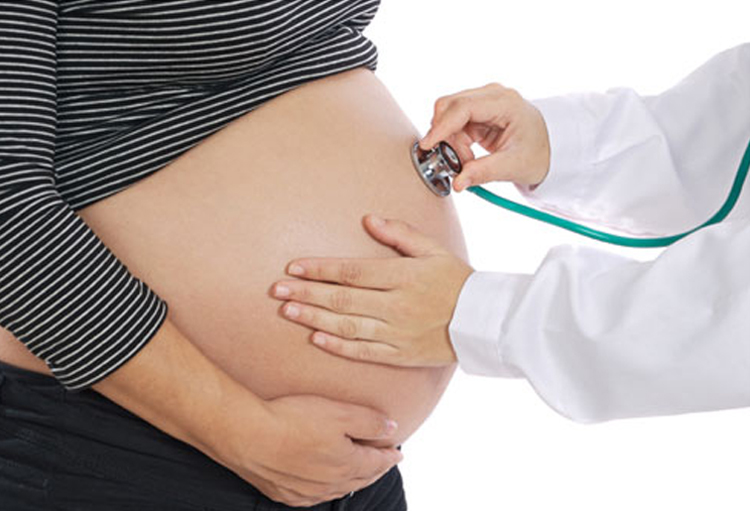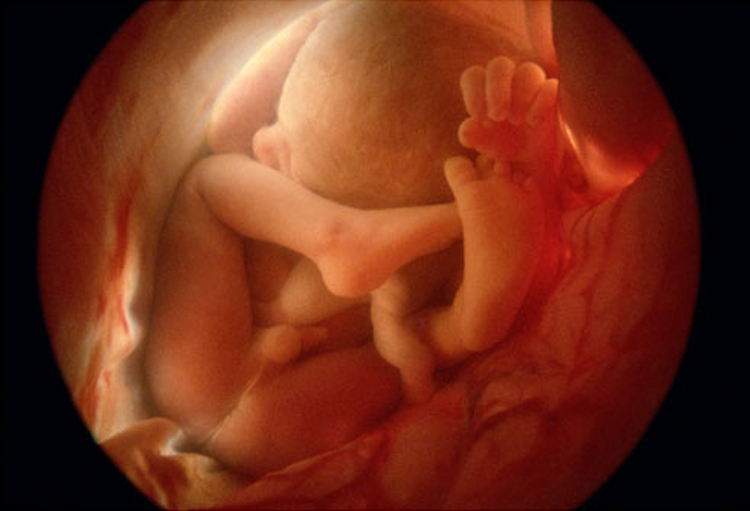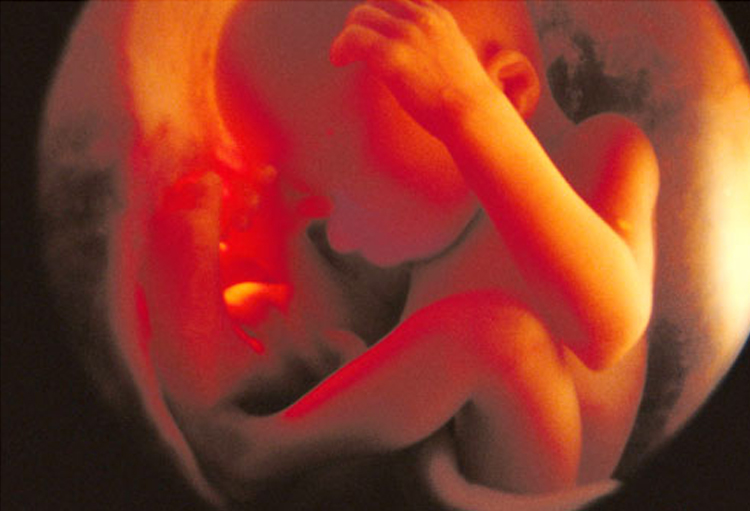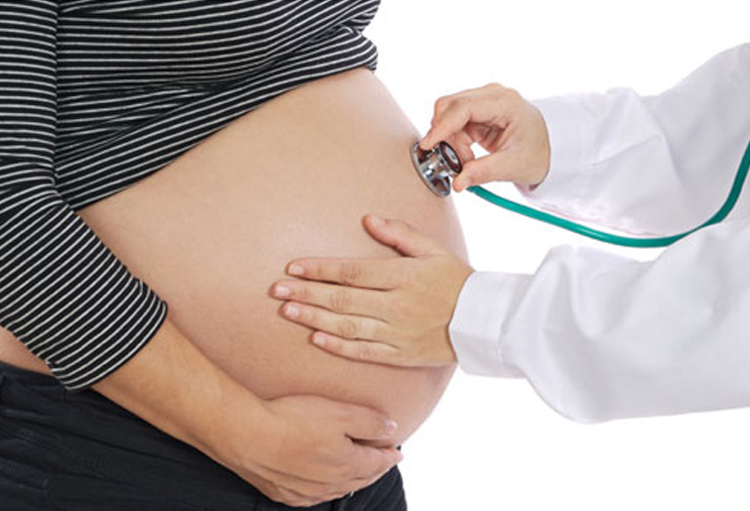Your Baby at Week 33
At week 33 of your pregnancy! At this stage, your baby is rapidly growing and developing, getting closer to joining the world outside your womb. Let’s delve into the incredible changes taking place in your little one during this exciting time.
Size and Growth

At week 33 Your baby is now between 17 to 19 inches in length, which is very close to the size they will be at birth. Although growth in length is slowing down, there is still room for further weight gain. On average, your baby weighs around 2 kilograms, but individual variations may occur.
Appearance
Gone are the days of that wrinkled, alien-like appearance. Your baby’s skin is becoming smoother as fat deposits increase beneath it. This plumping effect helps to fill out the creases and create a more rounded, adorable look.
Skeletal Development
At week 33 Your baby’s skeleton is continuously hardening, with bones becoming stronger and more developed. However, one interesting aspect is that the bones of their skull are not yet fused together. This allows them to move and slightly overlap, making it easier for your baby to navigate through the birth canal. These bones will fuse after birth, but complete fusion typically occurs during early adulthood.
Sensory Development
At week 33 A fascinating milestone during week 33 is your baby’s ability to differentiate between day and night. As the uterine walls thin, more light can penetrate, enabling your baby to sense changes in their surroundings. Consequently, they can now close their eyes while sleeping and wake up by opening them during the daytime. This development sets the stage for establishing a sleep-wake cycle after birth.
Immune System

At week 33 Great news! Your baby has completed the development of their immune system. This means they are better equipped to fight off infections and illnesses once they are born. Additionally, your baby’s immune system continues to receive a boost as antibodies are passed from you to your little one, providing them with essential temporary protection.
Brain Development
While your baby’s immune system is mature, their brain continues to develop at a rapid pace. Neural connections are forming, allowing for more complex brain activity. This development lays the foundation for future cognitive abilities and learning.
Movement and Reflexes
By week 33, your baby’s movements are becoming more coordinated and purposeful. You may feel more defined kicks, punches, and stretches as your little one explores their limited space. Reflexes, such as sucking and swallowing, are also well established as they prepare for feeding outside the womb.
Lung Development
Although your baby’s lungs have been developing throughout your pregnancy, they continue to mature at week 33. The lungs are producing surfactant, a substance that helps the air sacs inflate and prevents them from collapsing. This process is crucial for your baby’s ability to breathe properly after birth.
Preparation for Birth

As your due date approaches, your baby’s body is getting ready for the journey through the birth canal. The flexibility of their skull bones allows for easier passage, as they can slightly overlap to navigate the narrow space. This adaptation ensures a safer and less traumatic birth experience.
At Week 33 marks an exciting period in your pregnancy journey. Your baby’s growth and development are remarkable as they gain weight, strengthen their skeleton, and prepare for life outside the womb. With their immune system ready for action, your little one is becoming more resilient with each passing day. Cherish these final weeks as you eagerly await the arrival of your precious bundle of joy.
At week 33 As you enter week 33 of your pregnancy, you may notice a change in the way your baby’s kicks feel. What once felt like gentle flutters and rolls may now seem sharper and more pronounced. Let’s explore the reasons behind these sensations and what you can expect during this exciting phase of your journey.
Increased Strength and Size
One of the primary reasons for the change in the feel of your baby’s kicks is their increasing strength and size. As your little one continues to grow and develop, their muscles become stronger, allowing for more forceful movements. What once seemed like gentle taps may now feel like distinct kicks or even jabs.
Limited Space
At week 33, your baby is rapidly running out of room to move freely within the confines of your womb. As they grow, their movements may feel more pronounced and may even cause momentary discomfort. You may notice kicks and stretches in various parts of your abdomen, as your baby explores the limited space available to them.
Different Positions
At week 33 Your baby’s kicks may also feel sharper due to changes in their position within the uterus. As they shift and settle into different orientations, their kicks and movements can become more noticeable. For example, if your baby is head-down (in the cephalic presentation), their kicks may be felt lower in your pelvis, while a breech presentation may result in kicks higher up near your ribs.
Response to Stimuli
By week 33, your baby’s sensory abilities are developing rapidly. They can respond to external stimuli, such as sounds and light, by moving or kicking. If you notice an increase in sharp kicks, it could be because your baby is reacting to sounds or other sensory inputs.
Variations in Movement Patterns
Just like adults, babies have different activity levels and movement patterns. Some babies are naturally more active and have stronger kicks, while others may be more mellow and have gentler movements. If you notice a sudden change in your baby’s kicking patterns, such as a decrease in movement or a significant increase in activity, it’s always a good idea to consult your healthcare provider.
Engaging with Your Baby
At week 33 Feeling those sharper kicks can be an opportunity to engage with your baby. You can gently press your hand against your abdomen where you feel the movement, providing a gentle counterpressure. Many babies respond to this touch and may kick or move in response. It’s a beautiful way to bond with your little one even before they are born.
When to Seek Medical Advice
While sharper kicks are generally normal and a sign of your baby’s healthy development, there are instances where you should reach out to your healthcare provider. If you experience a sudden decrease in fetal movement or if you have concerns about the intensity or frequency of kicks, it’s essential to seek medical advice. Your healthcare provider can assess your baby’s well-being through various methods, such as monitoring their heart rate or performing an ultrasound.
At week 33 Feeling your baby’s kicks is an incredible experience that connects you to the precious life growing within you. As you enter week 33, you may notice a change in the sensations, with kicks feeling sharper and more pronounced. These changes are a testament to your baby’s growth, strength, and developing sensory abilities. Embrace these sensations and take comfort in knowing that your little one is thriving. Enjoy this special time as you eagerly anticipate the arrival of your baby.




